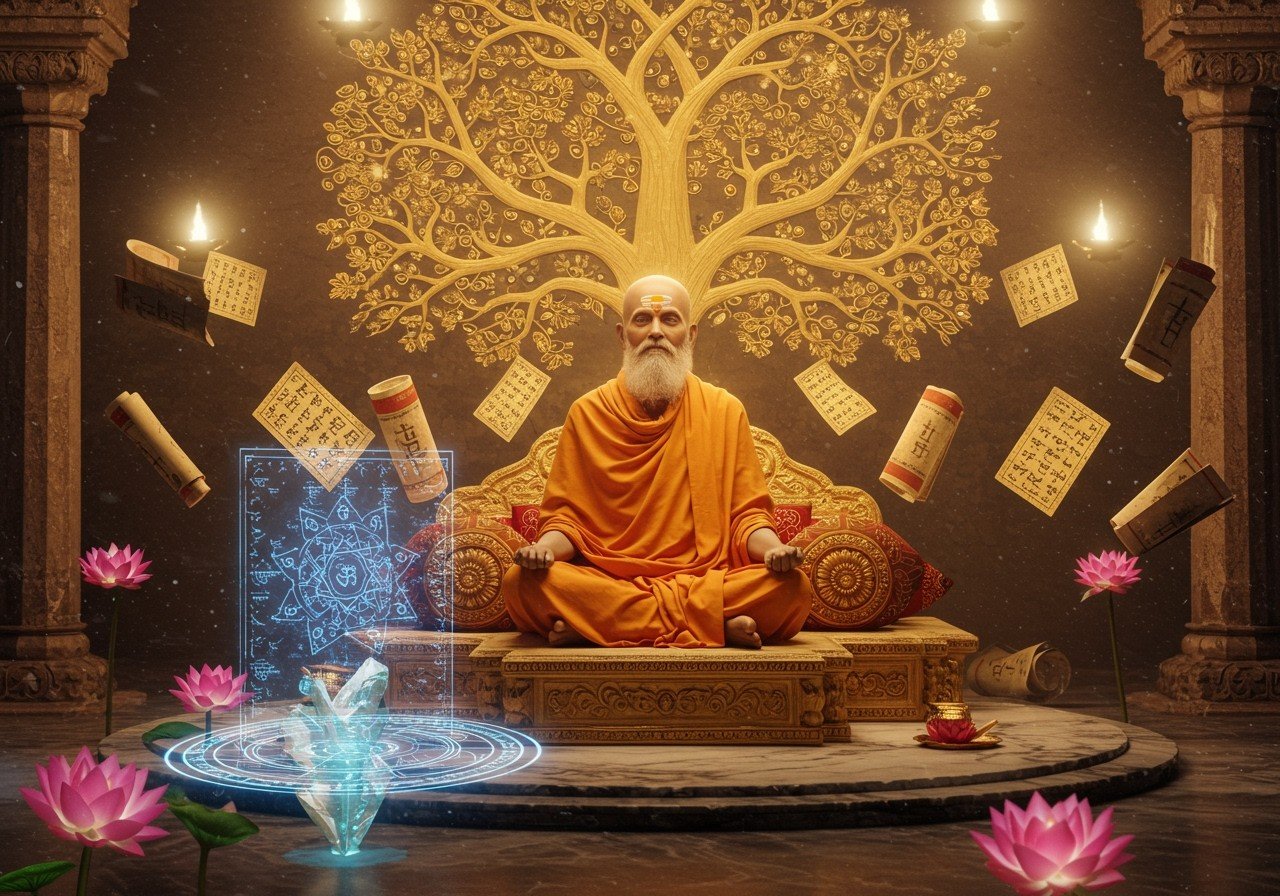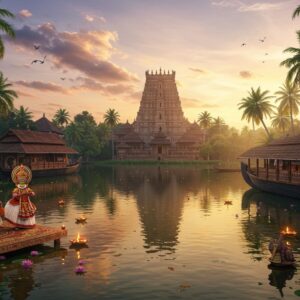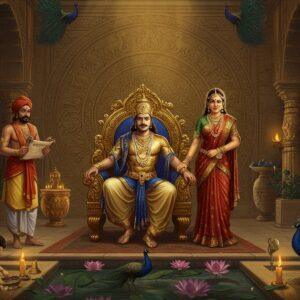Delving into Prabhākara Mīmāṃsā: A Comprehensive Guide

Embark on a journey into the intricate world of Prabhākara Mīmāṃsā, a significant school of thought within Hindu philosophy. Rooted in the ancient wisdom of the Vedas, this tradition emphasizes the importance of ritual actions (karma) and dharma (duty) in understanding the Vedic scriptures. This exploration offers a detailed look into the core principles of Prabhākara Mīmāṃsā, providing valuable insights for those seeking authenticity and tradition in their spiritual practices.
Understanding the Essence of Mīmāṃsā
The term “Mīmāṃsā” translates to “reflection” or “critical investigation” in Sanskrit. It signifies a philosophical tradition dedicated to interpreting the Vedic texts. Prabhākara Mīmāṃsā, a sub-school within this broader tradition, focuses specifically on the earlier portions of the Vedas that deal with rituals and dharma, also known as Pūrva-Mīmāṃsā or Karma-Mīmāṁsā. Founded by the 7th-century philosopher Prabhākara, this school offers a unique perspective on Vedic understanding.
Key Aspects of Prabhākara Mīmāṃsā
-
Epistemology (Means of Knowledge): Prabhākara Mīmāṃsā recognizes five valid ways to acquire knowledge (pramanas): Pratyakṣa (perception), Anumāṇa (inference), Upamāṇa (comparison), Arthāpatti (postulation), and Shabda (testimony). Notably, it rejects Anupalabdhi (non-perception) as an independent means of knowledge, differing from other Mīmāṃsā schools.
-
Theory of Error: This school proposes Akhyātivāda (or Vivekākhyātivāda) as its theory of error. It suggests that cognition is never entirely false, but may be incomplete, emphasizing the importance of further investigation rather than outright dismissal of perceived errors.
-
Triple Perception: Prabhākara is renowned for his theory of Triputīpratyakṣavāda (Triple Perception), stating that true knowledge involves simultaneous awareness of the knower, the known, and the act of knowing. This interconnectedness underscores the dynamic nature of perception.
-
Emphasis on Vedic Rituals: Prabhākara Mīmāṃsā, in line with the broader Pūrva-Mīmāṃsā tradition, strongly advocates for Vedic ritualism. Rituals are considered essential for upholding dharma and maintaining cosmic order. This includes daily practices (nitya karmas) and occasional ceremonies (naimittika karmas).
-
Sentence Meaning: Prabhākara’s school emphasizes the importance of context in understanding language. It posits that the meaning of a word is derived from its role within a sentence, rather than existing in isolation. This approach highlights the dynamic interplay of words in conveying meaning.
Exploring Deeper Concepts
Svataḥ prāmāṇya, the concept of self-evidence, plays a crucial role in Prabhākara Mīmāṃsā. It asserts that knowledge is considered valid unless proven otherwise. Another key concept is arthāpatti (postulation), a method of reasoning used to deduce conclusions not explicitly stated in the Vedic texts. Furthermore, Vedic injunctions (vidhi) are seen as mandatory commands that guide individuals in fulfilling their dharma.
Looking for resources to deepen your understanding of Hindu philosophy? Explore these insightful articles: Connecting With Your Inner Self: A Hindu Philosophy Guide and Hindu Philosophy Explained: A Beginner’s Guide. For a broader understanding of Hindu symbolism, check out Hindu Symbols Explained: Their Meanings and Importance.
Enhance Your Spiritual Practice with Poojn.in
Poojn.in, India’s leading online store for cultural and spiritual goods, offers a wide selection of products to support your Vedic studies and rituals. From pure copper kalash and brass lamps to traditional meditation seats, sacred texts, and incense, you can find everything you need to create a sacred space. Poojn.in also offers a variety of puja kits and items such as kumkum and roli, havan samagri, and baran dala sets to enhance your practice. Browse our collection today and experience the convenience of online shopping with secure delivery across India.
Prabhākara Mīmāṃsā in the Modern World
Even in 2025, the wisdom of Prabhākara Mīmāṃsā remains relevant. Its teachings on duty, knowledge, and rituals offer valuable guidance for navigating contemporary challenges. Embrace this philosophy and connect with the rich heritage of ancient wisdom. Explore online resources, digital libraries, and connect with communities to deepen your understanding of Prabhākara Mīmāṃsā and its application in modern life.
Frequently Asked Questions about Prabhākara Mīmāṃsā
What distinguishes Prabhākara Mīmāṃsā from other philosophical schools? Prabhākara Mīmāṃsā offers a unique interpretation of Vedic texts, emphasizing the practical application of dharma through rituals. This focus on orthopraxy distinguishes it from schools that prioritize knowledge or metaphysical speculation.
How does the Prabhākara school view the concept of error? The Akhyātivāda theory of error, central to Prabhākara Mīmāṃsā, proposes that cognitions are never entirely false but can be incomplete. This perspective encourages further inquiry and refinement of understanding rather than dismissing perceived errors.
What is the significance of rituals in Prabhākara Mīmāṃsā? Rituals hold a central position in this school of thought, serving as a means to fulfill one’s dharma and maintain cosmic harmony. They are not mere symbolic acts but essential practices for spiritual growth and well-being.


